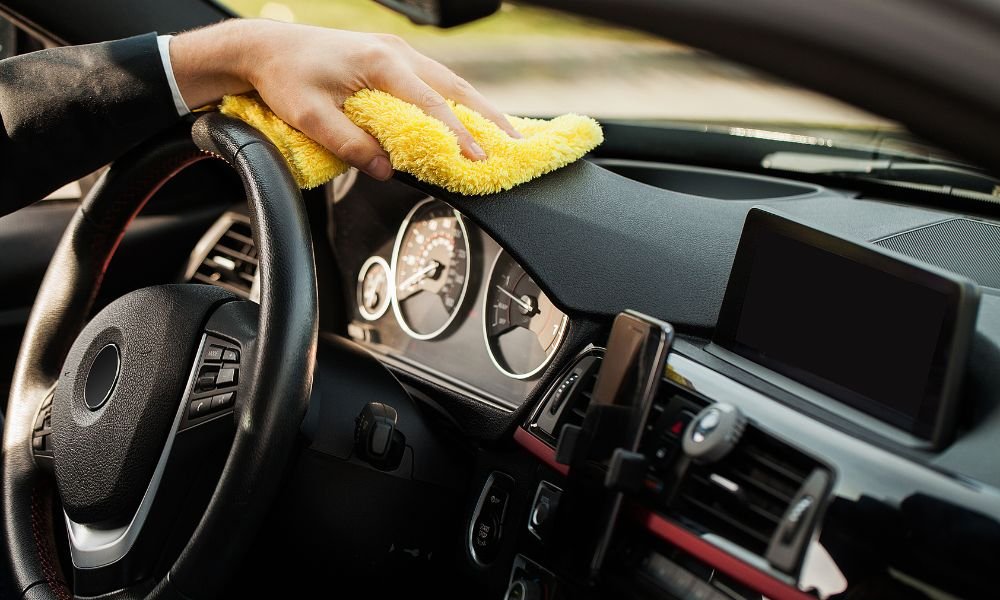County tasked with tracking down replacement CCSO cruisers amid global auto shortage | Local News
The Columbia County government received a bit of good news Monday after an insurance claim netted thousands of dollars in payout proceeds to cover the cost of a Columbia County Sheriff’s Office (CCSO) patrol cruiser that was recently permanently sidelined. The only problem now — finding a new replacement vehicle amid a multi-year automobile inventory shortage.
According to an appropriation ordinance passed this week by the Columbia County Quorum Court, the county on February 28 deposited $28,615 from the Association of Arkansas Counties to cover the replacement cost of a 2017 Dodge Ram pickup. The CCSO vehicle, according to Columbia County Judge Denny Foster, was a total loss due to a recent accident.
The motion passed Monday increased the county’s total revenue for
replacement vehicles to $65,000, which will hopefully cover the purchase costs for two new CCSO cruisers. Of those monies, only $58,000, or 90%, can be appropriated.
Besides the recently totaled patrol cruiser, the sheriff’s office is also still
awaiting a replacement unit that was approved last year, but, due to low inventory, one has still not been found.
“You can’t buy a new vehicle right now,” said the county judge on Monday.
So what does that mean for Columbia County? According to Foster, the sheriff’s office will have to look to the used market to fill the void.
“(The patrol unit) won’t be new,” he added. “They canceled that contract last Friday.”
But, as basic economics of supply-and-demand apply to the entire auto sector, prices on used cars and trucks aren’t much better than new ones nowadays.
According to a February report from financial publication Forbes, the average cost of a used car in the U.S. has surged 45% from early 2021, making the common cost now almost $26,000.
The supply crunch and cost problems are not only affecting Columbia County. Last month, Magnolia Mayor Parnell Vann said the city was having similar problems finding municipal replacement vehicles, and that new stock may not even be available for purchase until 2024.
“They told me no Fords … no Dodges for two years, and they’re going up $8,000,” the city official said on February 28.
The auto shortage has been ongoing for almost two years now, but semi-conductor shortages, which control most modern car electronics systems, including everything from Bluetooth phone integration to automatic comfort controls and gauge-cluster readouts, are the primary cause of the crisis, according to most reports.
The shortage has also created the ultimate seller’s market, but with no inventory, county and municipal fleets are having an inordinate time finding vehicles to replace their fleets.
Because of this, auto sales across the country have sagged.
A recent sales report from car reviewer and rating agency J.D. Power somewhat backs up the auto executive’s fears. According to the firm’s February report, total new retail and non-retail vehicle auto sales were down 11.1% from the same time last year. That equates to about 1.7 million fewer units sold than in February 2021, the report said.
“With retail inventory on pace to finish a fourth consecutive month below 900,000 units and ninth consecutive month below one million units, the new-vehicle supply situation is not displaying signs of near-term improvement,” the auto rating firm said last month.
But the low sales are not lowering costs. The average price for a new car is now more than $45,000 — the highest ever — and specialty pickups like a Dodge Ram, which CCSO now uses for its fleet due to their longterm durability over sedans, are harder to find. In fact, according to reports, around 80% of consumers are now paying above the sticker price for a new car.
This has made Foster even more hesitant that a vehicle will be found at a reasonable price in the future. Between the $58,000 appropriated Monday for two new patrol unit purchases, that leaves $29,000 for each new pickup — an amount that used to be somewhat reasonable, but may no longer be attainable.
“We’ll just have to find one we can afford,” he said.


